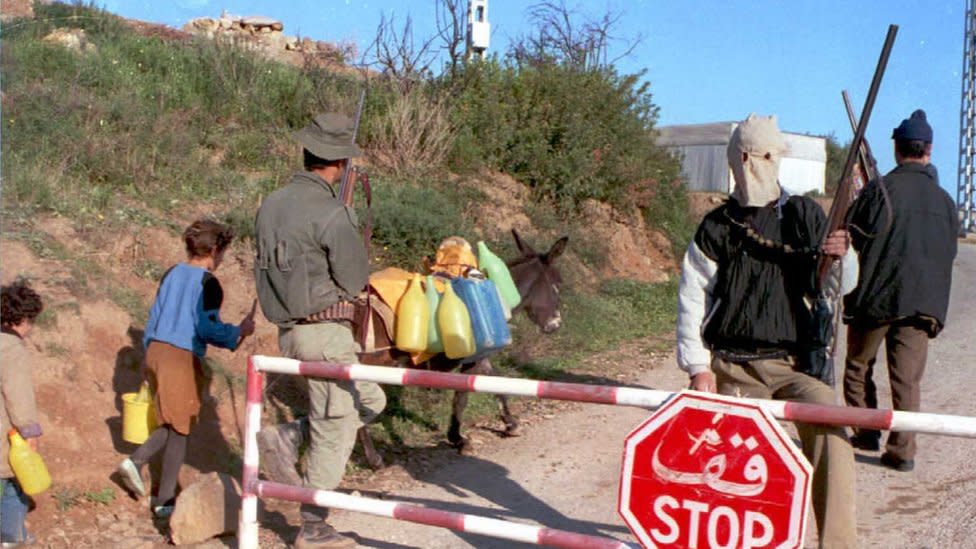Algeria country profile
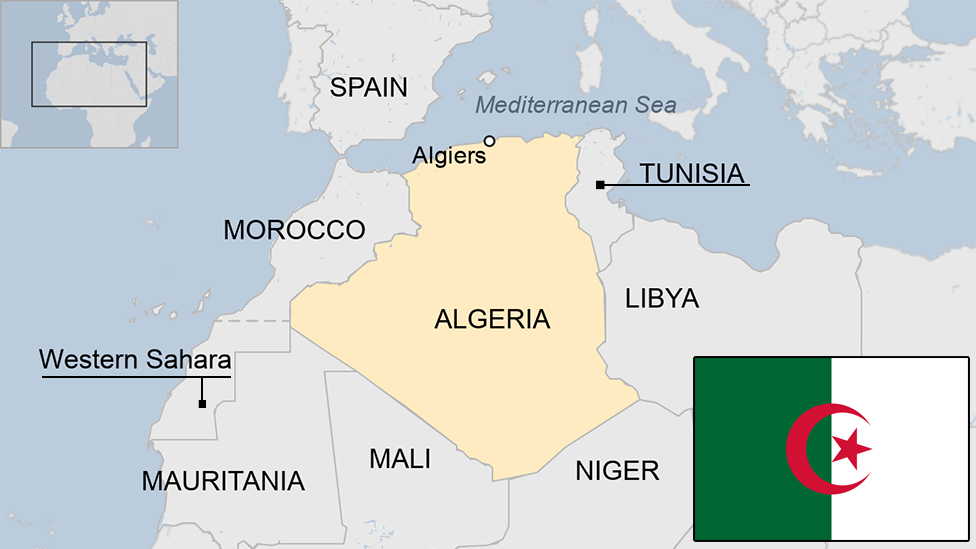
Algeria has been at the crossroads of numerous cultures and civilizations. After a succession of Islamic Arab and Berber dynasties between the 8th and 15th Centuries it became a largely independent part of the Ottoman Empire, but it 1830 it was invaded by France and formally annexed in 1848.
After World War Two, Algeria was riven by a bitter fight for independence in the 1950s and early 1960s, with conflicting reports about the death toll. French historians estimate some 400,000 Algerians were killed, while Algeria says more than one million people died.
The country later endured a brutal internal conflict after when elections that Islamists appeared certain to win were cancelled in 1992; a low-level Islamist insurgency still affects Algeria.
Geographically, the Sahara desert encompasses most of the country, except for its fertile and mountainous north, along the coast, where most Algerians live.
It has one of Africa's largest economies in Africa, due mostly to its large oil and gas reserves and is a major supplier of natural gas to Europe. The country's military is one of the largest on the continent and its spending on defence the highest in Africa.
Read more country profiles - Profiles by BBC Monitoring
PEOPLE'S DEMOCRACTIC REPUBLIC OF ALGERIA: FACTS
Capital: Algiers
Area: 2,381,741 sq km
Population: 46.7 million
Languages: Arabic, Tamazight, plus French
Life expectancy: 75 years (men) 78 years (women)
LEADER
President: Abdelmadjid Tebboune
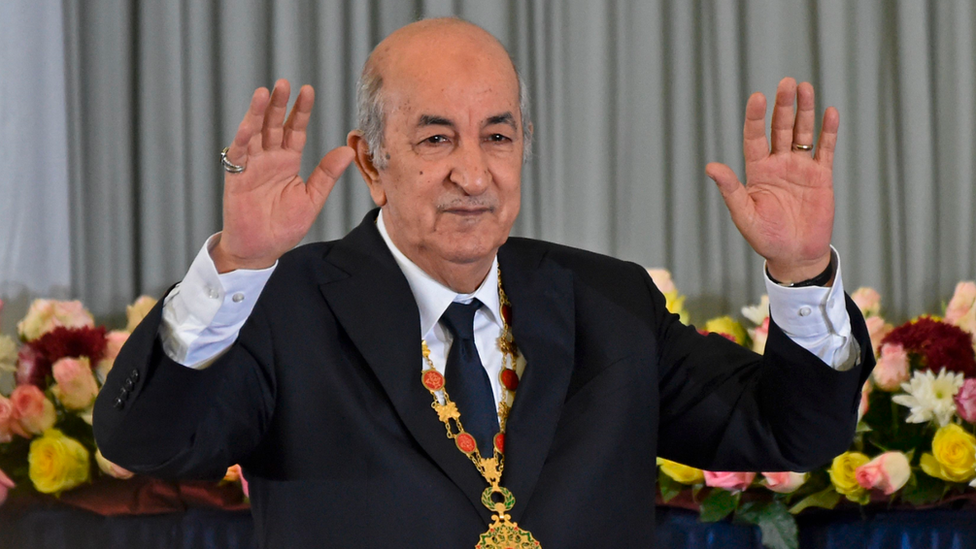
Algeria's incumbent President Abdelmadjid Tebboune was re-elected for a second term in September 2024, with 94.6% of the vote.
The only other two candidates approved by the authorities to run in the election - Abdelali Hassani Cherif, head of the prominent Islamist party, the Movement of Society for Peace (MSP), and Youcef Aouchiche of the Socialist Forces Front (FFS) - received just 2.1% and 3.1% of the vote, respectively.
Turnout was just above 48%, with many Algerians opting to boycott the vote.
In March 2024, President Tebboune announced the election would be held three months before the end of his term - a move some said would create a disadvantage for his opponents, due to the limited campaigning period.
President Tebboune has promised to create more jobs in a second term, but his critics doubt if he can fix Algeria's chronic problem of unemployment and bring about economic prosperity.
MEDIA
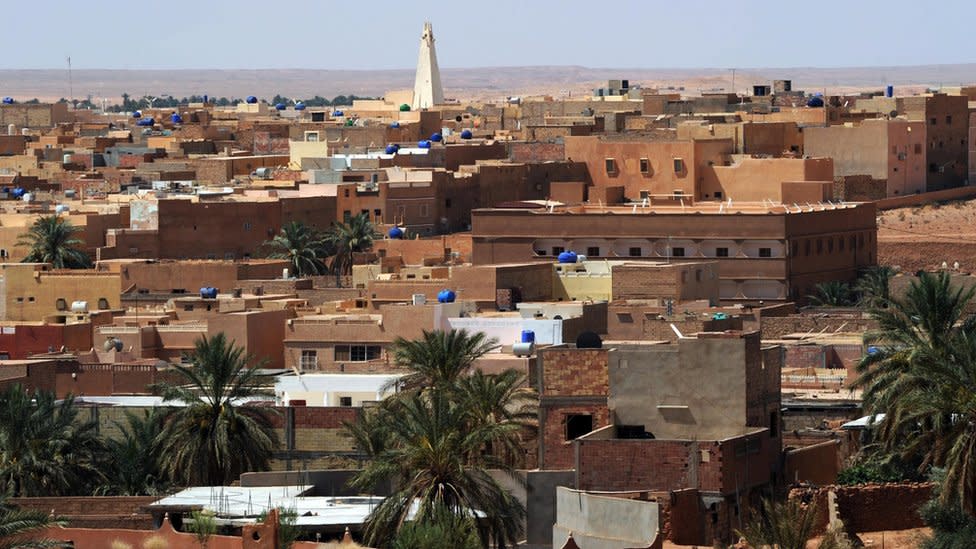
Press freedom in Algeria has been further restricted following a 2023 law passed by the country's parliament. The measure tightens media ownership rules and empowers courts to force journalists to reveal their sources.
Domestic media outlets are banned from receiving overseas funding and dual-nationals prevented from owning press or broadcasting companies.
TIMELINE
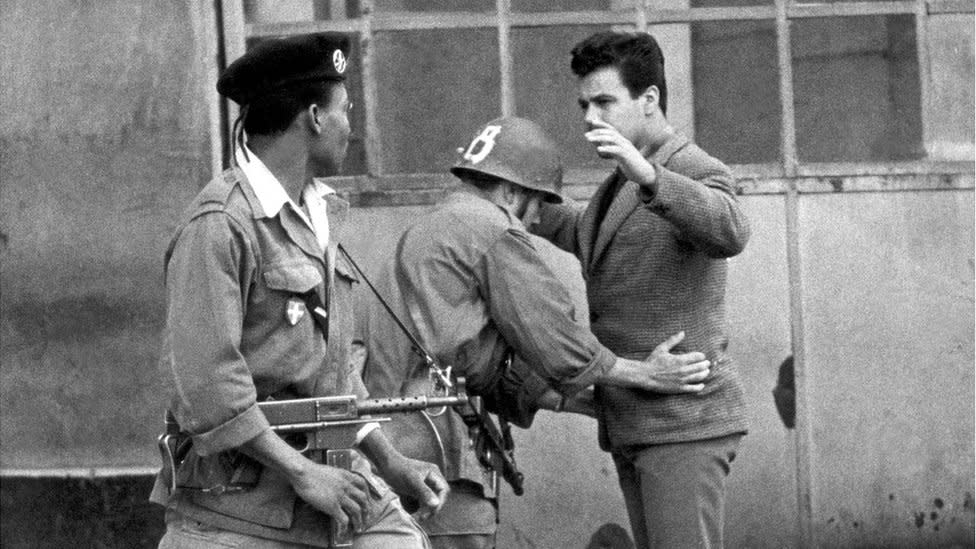
Some key dates in Algeria's history:
c. 600BC - Carthaginians expand settlements along the North African coast.
4th Century BC - Berbers form the single largest element of the Carthaginian army.
241-238BC - Revolt of the Mercenaries: Berber soldiers rebel after being unpaid following Carthage's defeat by Rome in the First Punic War.
146BC - Carthage is destroyed by Roman forces under Scipio Africanus.
2nd Century BC - Emergence of the Berber kingdoms of Numidia and Mauretania.
24AD - Berber kingdoms become part of the Roman Empire.
429 - Germanic Vandals invade North Africa and set up kingdom based on Carthage.
477-578 - Rise of the Mauro-Roman kingdom, an independent Christian Berber kingdom centred in Altava.
533-34 - Byzantine forces under Belisarius drive out the Vandals as part of the Emperor Justinian's reconquest of the Western Roman Empire.
578-708 - Kingdom of Altava is a successor state to the previous Berber kingdom. It flourishes until the conquest of the area by the Umayyad Caliphate in the seventh and eighth centuries.
972-1148 - Zirids: a Berber dynasty from modern-day Algeria rules the central Maghreb from 972 to 1014 and the eastern Maghreb from 972 to 1148.
1050s-1147 - Almoravids: A Berber Muslim dynasty centered in the territory of present-day Morocco established an 11th Century empire over the western Maghreb (North Africa) and Al-Andalus (southern Spain) starting in the 1050s and lasting until its fall to the Almohads in 1147.
1121-1269 - Almohads: A North African Berber Muslim empire that at its height, controls much of the Iberian Peninsula and North Africa.
1235-1557 - Zayyanids: A Berber dynasty centred on the town of Tlemcen in northwest Algeria.
1509 - Spanish conquer Oran.
1512 - Turkish privateer brothers Oruç and Hayreddin - both known to contemporary Europeans as Barbarossa or "Red Beard" - operate successfully off Tunisia.
1519 - After a Spanish attempt to take Algiers, an assembly of Algerian notables asks the Ottoman Sultan Selim to make Algiers part of the Ottoman Empire. Hayreddin Barbarossa is named Beylerbey of Algiers, or emir of emirs. The province becomes key for the Turks who see it as the spearhead of Ottoman power in the western Mediterranean.
1681-88 - French-Algerian War: part of a wider campaign by France against the Barbary pirates - mainly Muslim pirates and privateers operating from North Africa to capture slaves for the Ottoman slave trade. In addition to seizing merchant ships, they raided coastal towns and villages in Italy, France, Spain, and Portugal but also in the British Isles, Netherlands, and Iceland.
1783-1784 - Following attacks on Spanish merchant shipping, the Spanish navy and allies bombard Algiers, destroying much of its fortifications.
1815 - The Second Barbary War: between the United States and the Barbary Coast states of Tripoli, Tunis, and Algiers.
1816 - Britain and the Netherlands bombard Algiers in a bid to force the local ruler to stop enslaving Europeans. However, this does not completely end until the French conquest of Algeria.
1830 - Beginning of French conquest of Algeria. France occupies Algiers and seizes other coastal communities. Additional military forces are brought in over the following years to quell resistance in the interior, and encourage colonists to settle and farm.
1848 - Algeria becomes a department of France, an integral part of France itself. It is a destination for hundreds of thousands of European colonists. Many Europeans settle in Oran and Algiers, and form a majority of the population in both cities by the early 20th Century - about a fifth of the total population of Algeria.
1939-1945 - The defeat of France in 1940 and the Anglo-American occupation of North Africa during World War Two encourages hopes for independence.
1945 - Pro-independence demonstrations in Setif. Thousands of Algerians are killed in the French suppression of ensuing unrest.
1954-1962 - Algerian War of Independence. A major armed conflict between France and the Algerian National Liberation Front or FLN which sees Algeria winning its independence from France. It is a complex conflict characterized by guerrilla warfare and war crimes. It also becomes a civil war between the different communities and within communities. Death totals vary between 400,000 and 1.5 million. Up to a million European colonists leave Algeria.
1962 - Algeria becomes independent.
1976 - Algerian, Moroccan armies clash over Western Sahara.
1989 - New constitution removes the one-party state and moves country away from socialism to western capitalism.
1991-2002 - Algerian Civil War: with the Islamic Salvation Front (FIS)dominating the first of two rounds of legislative elections in 1991, and fearing the election of an Islamist government, the authorities cancel the elections. They ban the FIS, triggering a civil war between Algeria's armed forces and various Islamist rebel groups. Islamist militants conduct a violent campaign of civilian massacres. More than 100,000 people are thought to have died.
1999 - Abdelaziz Bouteflika becomes president and introduces national reconciliation policy.
2007 onwards - Islamist insurgency campaign in the Maghreb and Sahel by Al-Qaeda in the Lands of the Islamic Maghreb or AQIM, an Islamist militant organization that aims to overthrow the Algerian government and institute an Islamic state.
2019 - President Bouteflika announces he will step down after street protests, driven by decade-long economic stagnation, unemployment, labour market segmentation and chronic corruption. Abdelmadjid Tebboune becomes president.
2024 - President Tebboune is elected for a second term.
